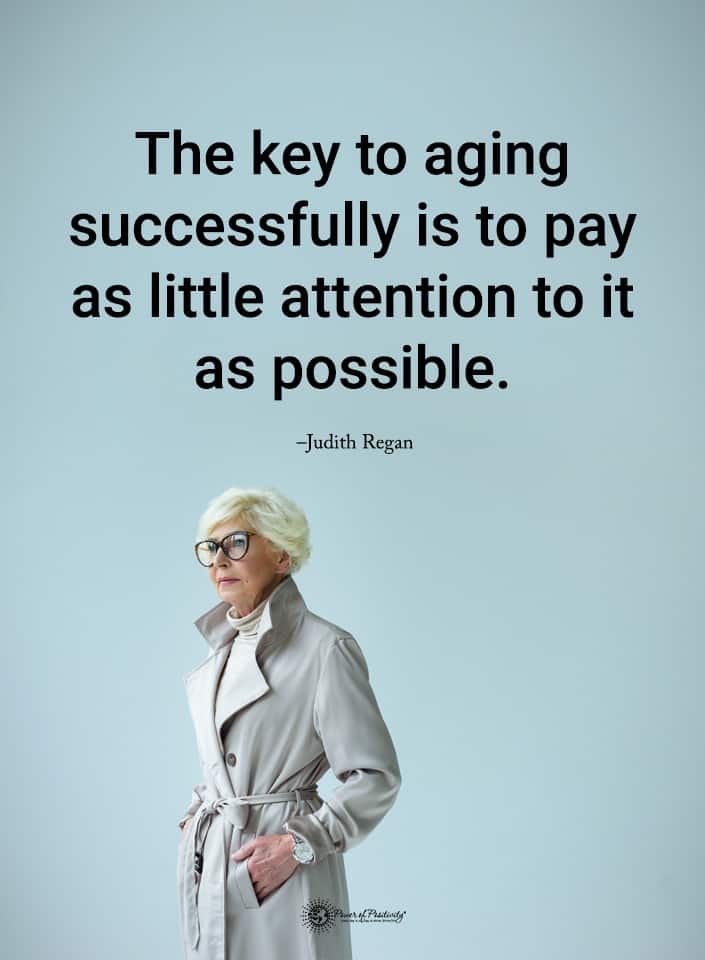Have you ever been concerned about what the future might hold? Do you know the first signs of cognitive decline? Do you wish you knew a way to strengthen your aging brain?
As people get older, the brain can get atrophied, just like any other muscle in the body. Cognitive decline can happen to everyone as time passes by. And the possibility of you losing your cognitive abilities is one of the scariest things ever. So, what are the signs of cognitive decline, and how can you stop it?
What Is Cognitive Decline?
Cognition is the combination of brain processes that include the ability to learn, remember, and make judgments. It is the ability to gather information, analyze it, and produce the appropriate response. Cognition is necessary for people to understand their environment and decipher the sensory input they receive.
Through childhood and adolescence, cognition is constantly changing and developing. As people become adults, their neurons start dying. Thus cognitive functions start declining. People who suffer from neuropsychological disorders have to deal with a faster decline of cognitive capabilities. This can look like people forgetting how to do routine tasks or slowly becoming unable to take care of themselves.
This process is called a cognitive decline, or mild cognitive impairment (MCI). It limits a person’s cognitive abilities and renders them unable to correctly respond to stimuli. More often than not, people struggle with confusion and memory problems as they age. Cognitive decline slows down the learning rate, thus increasing the need for repetition to learn new things.
With aging, people start being able to pay less attention to prolonged tasks. They have difficulties filtering out irrelevant information. There are many issues associated with aging and your brain’s health. These symptoms can stay stable for years, with little impact on your daily life, before starting to affect you truly.
The Ten First Signs of Cognitive Decline Include The Following:
According to the team at dementia.org, these are the earliest, most observable signs of cognitive decline:
- Forgetfulness or the inability to recall names.
- Losing or misplacing things.
- A drop in work performance.
- Getting lost when going out to once-familiar places.
- A lack of concentration.
- Losing focus on everyday tasks quickly.
- Inability to retain information.
- Decreased mental acuity.
- Forgetting details of one’s life.
- Overlooking important information when dealing with finances.
Specific examples are forgetting appointments, dates, recent conversations, and events, losing your sense of direction, and being more impulsive. Health professionals can help mitigate the worst impacts of cognitive decline in these situations, like Alzheimer’s. And, there are some things you can do individually to strengthen your brain.
5 Ways To Strengthen The Brain Before You Observe The Early Signs Of Cognitive Decline
Now that you know what to look for, here’s some good news. You can engage in brain-strengthening activities to keep the mind sharper.
1. Exercise And Diet
The first thing you can do from home to prevent cognitive decline is exercise and make sure you have a healthy diet. These activities are relatively easy to do. You don’t have to go to a fancy gym or have a fancy chef. Instead, you can do it at home.
Exercise comes with an array of medical benefits. It helps prevent heart disease, lowers blood pressure, prevents diabetes, and lowers colon and breast cancer risk. Besides these direct health benefits, exercise can help your psychological well-being. It helps with insomnia, anxiety, and depression.
Engaging in regular exercise prevents cognitive decline and can help people who already experience memory loss or other symptoms. For example, exercise is helpful for people who carry the APOE4 gene variant, which makes them more susceptible to Alzheimer’s.
Diet is also critical when taking care of one’s mind and body. A Mediterranean-style diet is the one that helps the most. It is a diet based on fruits, vegetables, whole grains, beans, nuts, and seeds. It includes small amounts of meat, such as fish and poultry, but limits red meat.
This diet has been shown to improve cardiovascular health and lower the risk of certain cancers. It protects against cognitive decline. This diet has been correlated with slowing the progression of dementia in people with the condition.
2. Mental Stimulation To Offset Those First Signs Of Cognitive Decline
Many people believe that education level is the most important thing to keep your brain sharp. But that’s not entirely the case. Researchers believe that education is less important than staying mentally active.
One study involving people in their seventies showed that the people whose hobbies were activities that require mental engagement. Things like reading, writing, puzzles, doing crosswords, and playing board games helped them stay sharper for longer. In the following five years, they were found to be half as likely to develop mild cognitive impairment as other people their age. Continuous learning is associated with lowered risk of developing dementia or Alzheimer’s
Part of keeping your brain stimulated is knowing how to keep stress levels under control. Don’t pass off stress a part of your daily routine, as it can lead to cognitive decline later in life. While most people can’t get rid of all stress, there are ways to learn to cope with it. Meditation and breathing exercises can do the trick for many people. As long as you can take care of yourself, you will be able to manage stress levels. And the better you can manage stress, the less strained your brain will be.
3. Social Interaction Can Positively Slow Down The First Signs Of Cognitive Decline
All aspects of someone’s life can suffer massively from a lack of social interactions. One could argue the same about your mental sharpness. If you don’t have the right stimuli around you, it will decline. That is to say; if you don’t surround yourself with the right people, you won’t be able to strengthen your aging brain.
Research shows that people with strong social ties are less likely to experience cognitive decline than the ones who are alone. Social interactions help people strengthen their memory and cognitive functions. In contrast, people who are isolated are more prone to depression, which correlates with a faster cognitive decline. Social isolation is a significant risk factor for many health issues, like heart disease and depression. The WHO connects low social participation and fewer social contacts to increased dementia risk.
Having a solid network of people who care for you can help you release stress. Social activities also put you in a position where you have to engage with critical mental processes. For example, social movements can strengthen attention and memory. Also, social engagement supports neural networks, slowing down cognitive decline. It can also delay the onset of dementia.
4. Reduce Tobacco And Alcohol Consumption To Offset The Earliest Signs Of Cognitive Decline
When people think about why certain vices are wrong, they only think about immediate health concerns. Lung cancer is probably the first thing that goes through someone’s mind when considering why they should quit smoking. But the physical problems aren’t the only side effects of such vices. People who consume tobacco and alcohol often are prone to cognitive decline.
Smoking is associated with cancers, cardiovascular disease, and pulmonary conditions, amongst many others. But studies have shown that people who smoke are at a higher risk of developing dementia and Alzheimer’s. Medical professionals recommend quitting smoking if you want to lower the risk of cognitive decline. If you don’t know where to start, there are behavioral and drug interventions for quitting tobacco.
With alcohol, the story is a bit different. Some medical professionals believe that low-to-moderate intake of alcohol is beneficial for brain health. Others seem to think that even light drinking can be harmful. But everyone agrees that excessive alcohol consumption is a significant risk factor for dementia and cognitive decline.
To make sure you keep your mental sharpness, keep away from large quantities of alcohol. While it is your decision if you want to indulge in more moderate amounts, large quantities can only be harmful. Same as with tobacco, there are behavioral and drug treatments to help you.
5. Therapies To Help Combat The First Signs Of Cognitive Decline
The most effective way to slow down cognitive decline is to reach out to a professional and get a treatment catered towards your needs. If you start being concerned about the possibility of experiencing cognitive decline, visit a therapist and ask for their advice.
As soon as you notice signs of cognitive decline, you might want to get that checked out. It might not be anything concerning, or it might be the beginning stages of certain psychological conditions. It’s better to know where you stand. A yearly visit to a cognitive therapist will only help you. Even if there’s nothing for you to worry about, it is better to take precautions.
In case your therapist notices that the state of your cognitive health is concerning, they might recommend that you do some therapies. There are a variety of evidence-based therapies that can help slow down impairment. The therapy you use depends on the levels of cognitive impairment you are dealing with.
Amongst these therapies are neurofeedback, light therapy, CVAC, and more. For example, neurofeedback is the process through which your brain’s capacity is harnessed to reshape the weakness in the brain’s function. But that’s not the only option you have, so it’s essential to check with your therapist to see which solution fits you best.
Final Thoughts On The Importance Of Knowing The Early Signs Of Cognitive Decline…And Knowing How To Increase Brain Strength
As time passes, people have to start dealing with cognitive decline. The mental processes get weaker. As a result, people cannot learn new things, and they can’t focus on prolonged tasks anymore. There are many other effects of cognitive impairment, but the most common are memory loss and confusion. This process is a normal consequence of passing time, but that doesn’t mean you can’t manage it.
Having a healthy lifestyle is key to strengthening an aging brain. The first thing you have to take care of is your body. You have to exercise regularly and have a healthy diet. Some diets have been found to correlate with a lower risk of dementia. If you have vices, like tobacco use and alcohol consumption, you have to let that go. Those substances can take a toll on your brain’s health.
You need to keep your brain stimulated through engaging exercises or social interactions. People who keep themselves isolated are more prone to depression and cognitive decline. If you find that you can’t improve your mental strength by yourself, reach out to a professional. Many therapies can be used to rewire your brain and ensure it stays sharp for longer.
And even if therapy isn’t what you need, regular visits to a therapist are still good. They can help ensure you prevent certain diseases, like dementia and Alzheimer’s.
The post 10 Signs of Cognitive Decline (And 5 Ways to Strengthen The Brain) appeared first on Power of Positivity: Positive Thinking & Attitude.









